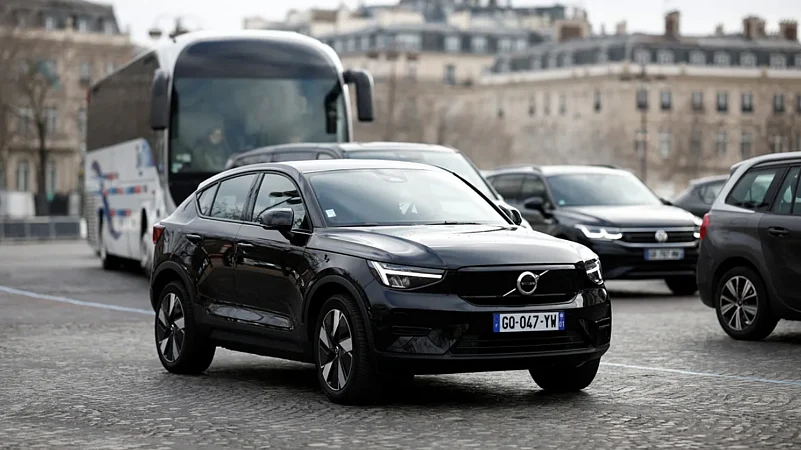On Sunday, Parisians approved a proposal by the Paris mayor's office to triple the parking fees for SUVs. This decision comes as part of the city's efforts to reduce air pollution and address the climate crisis.
Residents were given the opportunity to vote on the implementation of a distinct parking fee for "heavy" and "polluting" vehicles. The proposal received the support of 54.55% of voters, despite a low turnout. Out of the over 1 million eligible voters, only slightly more than 78,000 participated in the vote.
According to the proposal, primarily targeting commuters who drive into the city from the outskirts, combustion or hybrid vehicles weighing 1.6 metric tons or heavier, as well as electric cars weighing 2 tons or more, will incur a parking fee of €18 ($19) per hour in central Paris, as opposed to the €6 ($6.40) fee for other vehicles.
In a press release, the Paris municipal government pointed out that the average dimensions and weight of vehicles within the city have increased significantly, primarily “due to the exponential development of SUVs.” SUVs now account for 40% of vehicle sales. The municipality also highlighted the various environmental, safety, and public space allocation challenges posed by the widespread presence of SUVs.
The global SUV market is experiencing substantial growth, accounting for nearly 50% of all car sales in 2022, as reported by data from the International Energy Agency (IEA). This trend has been especially pronounced in the United States, India, and Europe, where SUV sales have seen significant increases.
The surge in large vehicle sales has environmental consequences, as these vehicles not only require more resources for manufacturing but also consume more fuel.
In 2022, the global fleet of 330 million SUVs contributed approximately 1 billion tons of carbon pollution, which contributes to the planet's warming. If SUVs were considered a separate entity, their carbon emissions would rank among the top 10 highest carbon-polluting entities in the world.
Although electric vehicle sales have shown growth in recent years, the pace is not sufficient to counterbalance the rising fossil fuel consumption and carbon emissions from non-electric vehicles, as noted by the IEA.
The official results of the Paris vote are anticipated to undergo verification by the electoral commission on Monday. If also approved by local authorities, the proposed measure is scheduled to be implemented on September 1.
Paris Mayor Anne Hidalgo expressed her gratitude to the voters who participated in Sunday's vote. She emphasized that the decision had broader implications related to ecology, road safety, and public health. “Here in Paris we ensure that generations can live in a healthy environment,” she said.
Over the years, Hidalgo has introduced policies aimed at reducing traffic and enhancing pedestrian-friendliness in the city. These measures have included car bans along the River Seine's banks and the expansion of bicycle lanes throughout the city.
In the previous year, residents of Paris supported a ban on rental electric scooters within the city, citing concerns related to congestion and safety. This referendum was also coordinated by the Paris mayor's office.
However, there have been notable opposing voices to the SUV proposal, including the advocacy group 40 Millions d'Automobilistes (40 Million Motorists).
“We must firmly oppose these obstructions to freedom carried out under false pretexts, which here are based on a single ridiculous factor: the shape of a vehicle,” the group posted on X.
Green policies are garnering rising controversy in Europe, with climate change emerging as a divisive issue in the region's cultural debates.























